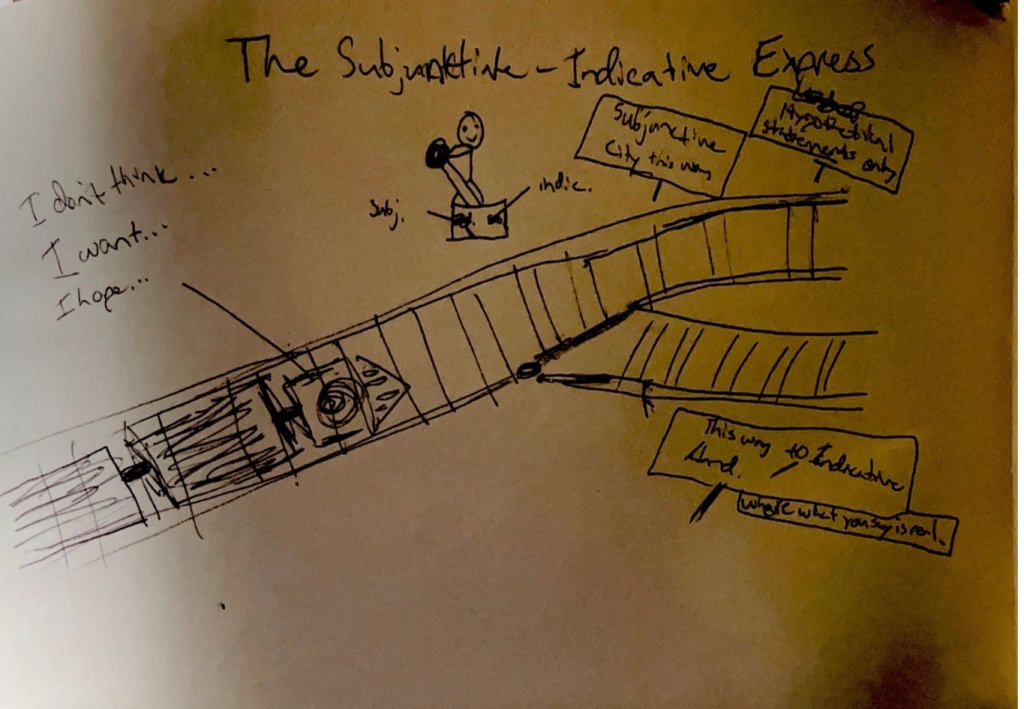
This drawing (if you want to call it a drawing) represents my thought process when I decide whether I should conjugate a verb in the subjunctive or indicative mood– hence the name, “Subjunctive-Indicative Express”.
You may be thinking, “what is subjunctive and indicative?” and perhaps “how is a mood related to these two words?” and your concern would not be unwarranted because I know my “mood” could be accurately characterized as irritated when I first saw these words.
First, mood refers to the manner or feel of a sentence. You would be right to object with “that makes no sense…a sentence cannot have a feel.” However, I am specifically talking about the level of certainty in a sentence.
A sentence in the subjunctive mood mainly includes sentences that involve events that could, would, or might take place. That is, they have not yet, and may never, transpire. For example, saying, “I might go to the store” is a subjunctive sentence because I have net gone to the store. In English, the subjunctive mood is utilized frequently because, in my humble opinion, humans are naturally indecisive. Especially when making future plans, people often say, “I might do this” or “I might do that”, but they have a hard time committing to a specific plan of action. This uncertainty, created by the sentence’s mood, contributes to a lot of social tension among friends because, by not committing to an action, it inherently offers the speaker a way to avoid the action without having to decisively say, “I will not do that”, which is a statement in the indicative mood.
Contrarily, a sentence in the indicative mood refers to actions that have already occurred or habitually occur. For instance, if I say, “I go to the store” or “I went to the store”, I am suggesting that I already went to the store or am certain that I will go the store in the near future.
Now, for the moment you have been waiting for, or not, because I doubt anyone will read this, the reason I chose a train as a metaphor for my thought process when choosing between the indicative and subjunctive moods will be revealed. Whenever I am about to speak in a different (Indo-European) language, and I start saying something like “I want”, “I hope”, or “I don’t think”, I know that the next verb must be conjugated to match the subjunctive mood because the following clause will convey my desires, hopes, or things I don’t think are true.
Apologies the urine-colored hue on the image and the not-so-daVinci-like artistry. I hope that it has been slightly deciphered after the explanation (what was the mood of this sentence… subjunctive or indicative?). If not, feel free to send questions.
